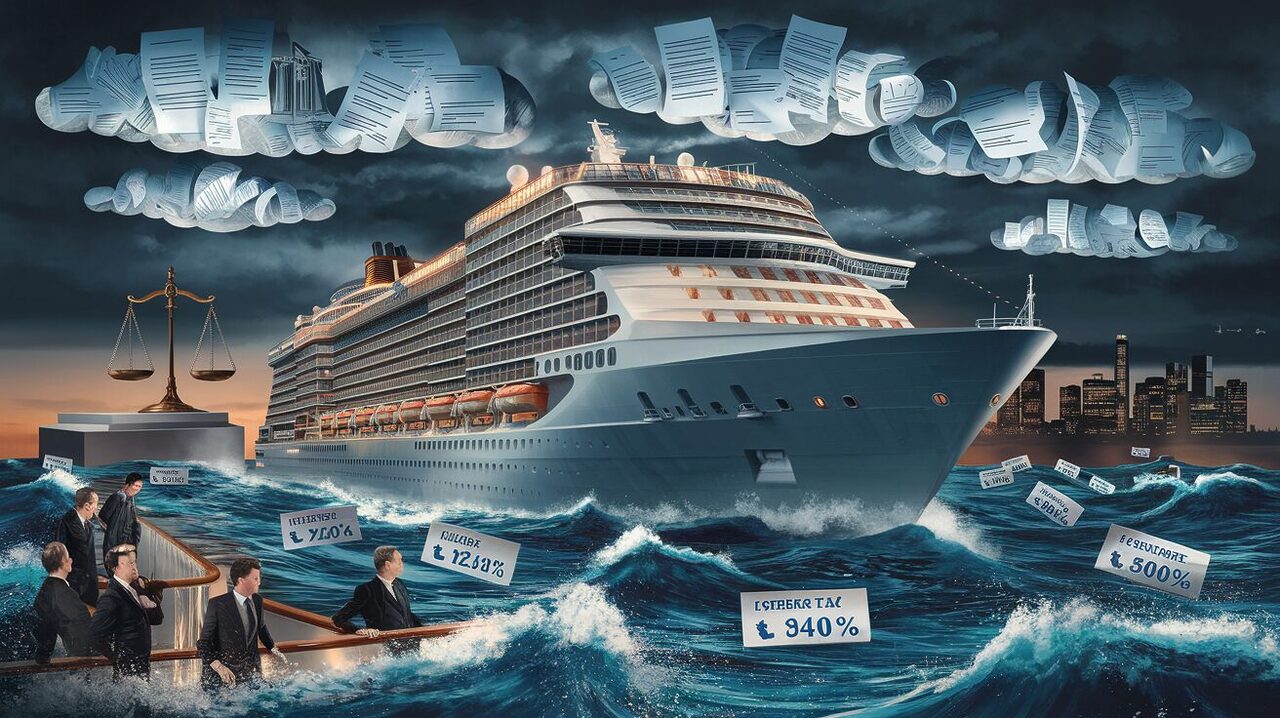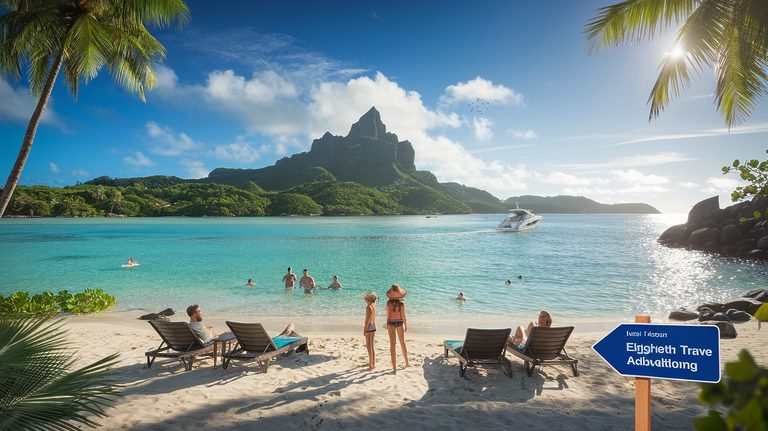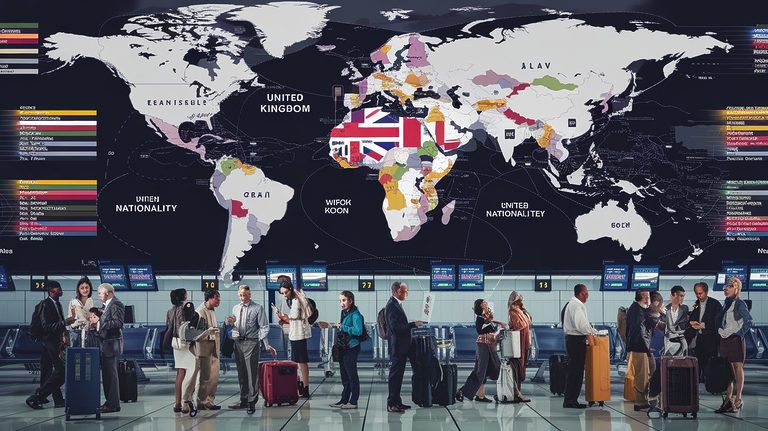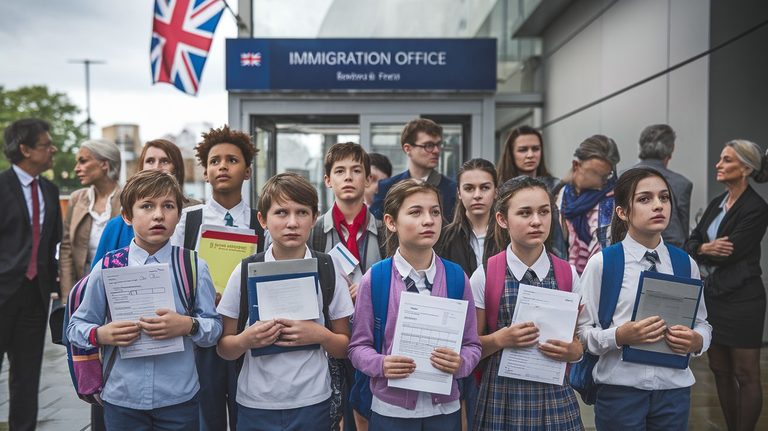The cruise industry, known for its significant contribution to coastal and island economies, is currently navigating a complex landscape of new government taxes and regulations. As various nations seek to manage the environmental impact and infrastructural strain caused by increasing cruise tourism, the introduction of these measures raises concerns within the sector. From Mexico’s revamped passenger tax to Hawaii’s controversial tax structure, these developments herald a pivotal moment for cruise operators and the regions that depend heavily on their patronage. The implications of these policies extend beyond immediate financial adjustments, potentially reshaping the future of cruise travel altogether.
The cruise tourism industry, essential for many coastal and island economies, is encountering significant challenges as new government taxes and regulations are being introduced. These measures aim to balance the economic benefits of cruise tourism with the need to manage its impact on local infrastructure and the environment. As various regions around the world implement changes, the industry’s stakeholders are expressing concerns about potential drops in visitor numbers and their economic repercussions.
Mexico Lowers Passenger Tax
In a recent development, Mexico’s federal authorities reached an agreement with several major cruise lines regarding the controversial Non-Resident Duty (DNR). Initially proposed at $42, this tax was set to be enforced from January this year, leading to protests from the Federation of Florida and Caribbean Cruise Associations (FCAA/FCCA). The association argued that such a tax could hinder investment in the region, especially in areas like Acapulco, which is in need of substantial rebuilding efforts.
Following negotiations, it was determined that the tax would instead be set at a more manageable $5 starting in July, with planned increments leading to $10 in 2026, $15 in 2027, and $21 by August 2028. This gradual roll-out aims to mitigate any adverse consequences on tourism, particularly in key destinations such as Cozumel and Mahahual in the Riviera Maya, where local businesses have already expressed concerns over potential losses.
Hawaii’s Tax on Time Spent On Board
Hawaii has introduced an 11% tax on transient accommodations, specifically targeting cruise passengers based on the time they spend aboard vessels in port. By treating these passengers akin to hotel guests, the state seeks to ensure they contribute to local infrastructure. However, this legal maneuver raises several questions as most cruise ships operate under foreign flags and are governed by international treaties.
The crux of this issue lies in whether a state like Hawaii can tax passengers for their presence on vessels registered in foreign territories. Experts in maritime law suggest that this new tax could contradict U.S. Commerce and Foreign Commerce Clauses, potentially leading to lengthy legal disputes. Proponents argue it is necessary for funding sustainability initiatives, but its implementation risks creating a confusing landscape of individual state regulations.
Scotland’s Consultation on Local Levy
The Scottish government is considering empowering local councils to impose levies on cruise ships as part of a broader tourism tax initiative. Following the Visitor Levy Act, which allows for certain overnight stay taxes, a public consultation is currently underway. This proposal is rooted in the increasing cruise tourism in Scotland, particularly among its islands, where the growing numbers have both economic benefits and infrastructural strains.
In Shetland, for instance, cruise visitors make up a substantial proportion of the area’s tourist traffic. However, opinions are divided among locals regarding the implementation of a tax. While some argue it could fund necessary infrastructure improvements, others fear it may deter cruise traffic, which is vital for local businesses. The Shetland Local Council aims to find a balance that supports local community needs without compromising the attractiveness of the destination.
Norway’s Tourist Tax Excludes Cruises, For Now
The Norwegian government has proposed a bill that would permit municipalities to levy a 3% tourist tax on overnight accommodations, although this initial phase excludes cruise passengers. The intention is to address the strain on infrastructure in high-traffic areas, especially as tourist numbers swell in places like the Lofoten Islands.
Critics have pointed out that by omitting cruise tourists from this initial tax, the government is avoiding significant contributors to local infrastructural pressures. There are indications that future legislations may consider a separate tax targeting cruise tourism, particularly in regions where the impact is most acutely felt.
Global Trends in Cruise Regulations
The broader trend of introducing new taxes and regulations reflects a growing worldwide concern over the sustainability of cruise tourism. Various destinations are adopting measures that not only require financial contributions from cruise passengers but also aim at ensuring that local economies can sustain the pressure posed by an influx of tourists.
This shift in the regulatory landscape points towards a future where cruise tourism will have to navigate an increasingly complex set of challenges. Stakeholders within the industry will need to collaborate with government bodies to find solutions that support robust tourism while addressing the environmental and infrastructural impacts associated with increased visitor numbers.
- Mexico: Reduction of the DNR tax from $42 to $5 for cruise passengers to stimulate local economy.
- Hawaii: New 11% tax on cruise passengers raises legal questions regarding jurisdiction over foreign-flagged vessels.
- Scotland: Consultation on local levy for cruise ships to fund infrastructure amid rising tourism.
- Norway: Proposed tourist tax for overnight stays excludes cruise passengers, highlighting potential future regulations.
- Florida & Caribbean: FCCA’s opposition to federal tax increases, citing risks to tourism investment in Mexico.
The cruise tourism industry, crucial for many coastal and island destinations, is facing increased scrutiny from governments seeking to manage its impact on local infrastructure and the environment. As a result, new taxes and formalities are being introduced globally, sparking concern that these measures may deter tourism and harm local economies. For instance, Mexico has agreed to reduce its passenger tax significantly after negotiations with cruise lines, while Hawaii has introduced a controversial tax on time spent aboard cruise ships. Similarly, Scotland is considering a local levy on cruise ships to fund infrastructure improvements. However, with many cruise companies operating under foreign flags, legal complexities surrounding such taxes persist, raising questions about their implementation and potential impact on the industry.

Hello! I’m Elisa, a 45-year-old travel companion with a passion for exploring new places and cultures. With years of travel experience under my belt, I thrive on creating memorable journeys for my clients. Let’s embark on an adventure together!





